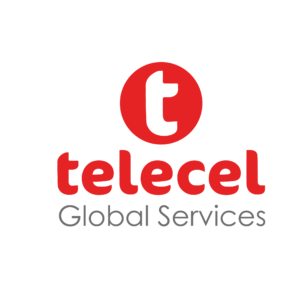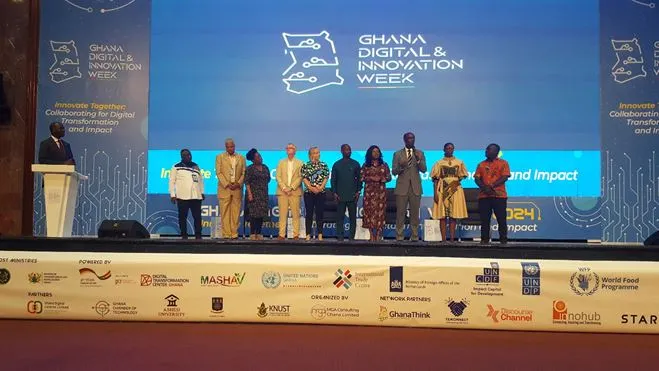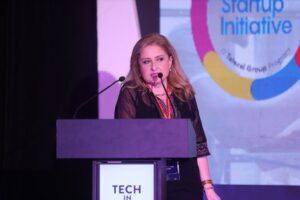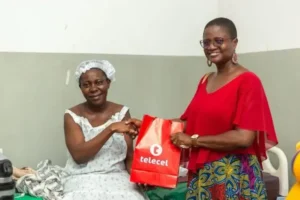To overcome challenges to Ghana’s digital transformation, we must cultivate an ecosystem where start-ups, corporations, governments and non-profits work in concert rather than in isolation, Chief Executive Officer (CEO) of Telecel Ghana, Patricia Obo-Nai has said.
She believes that teamwork and a blend of diverse perspectives are essential for driving progress in the country’s digital transformation.
“Collaboration has the power to spark innovation because everyone brings a unique set of knowledge and skills to the table – propelling a solution to top of the market. It allows us to combine diverse perspectives, skills and experiences to create something greater than the sum of its parts.
“One of the greatest challenges to digital transformation is overcoming the silo mentality – which is the unwillingness to share information and ideas with each other because we believe that gives us a competitive edge. The world has moved on,” she elaborated.
Additionally, she said the country’s digital transformation trajectory must be one whereby opportunities are accessible to all – further noting that this requires investing in digital literacy programmes, supporting grassroots innovators and creating platforms that amplify under-represented voices.
Ms. Obo-Nai made these remarks in a keynote address at the opening ceremony of Ghana Digital and Innovation Week (GDIW) 2024 in Accra on the theme ‘Innovate together: collaborating for digital transformation and impact’.
Citing the GSMA Mobile Economy Report 2023, she indicated that only half of the global population are connected to the internet. She added that 41 percent are not using it, while 4 percent have no signal to even think of connecting.
Also, she said that in sub-Saharan Africa, the gap is even wider, as less than a quarter of the population are connected – with 60 percent of the people not using it and 15 percent not having any signal at all.
Additionally, she said the world needs over US$400billion to close the infrastructure gap – which requires partnership and collaboration.
Touting efforts made by her outfit with respect to closing the gap, Ms. Obo-Nai mentioned that: “Through our partnership with government, we have been able to connect over 1,000 rural communities. Government provided the infrastructure and we as a telco brought our spectrum and transmission-reach to connect these communities with the internet”.
She noted that the country’s youthful population, with a median age of 21 and nearly six million out of 33 million people active on social media, offers promising opportunities for growth.
“We are one of the highest consumers of data – about 10gb per consumer. This presents a huge opportunity to accelerate our development through digital if we can tap into the interest, passion of our youth and direct their energies into digital skills that can drive productivity. The dividends are enormous and we should not miss out,” she also said.
The GDIW 2024 is meant to inspire action, foster commitments, celebrate successes and encourage collaboration among stakeholders and partners within the country’s digital ecosystem.
It is organised by the Entrepreneurship and Innovation Programme (NEIP) in partnership with the Ghana Hubs Network (GHN) and Impact Investing Ghana (IIGh).
Other partners include the Deutsche Gesellschaft für Internationale Zusammenarbeit (GIZ) on behalf of the German Federal Ministry for Economic Cooperation and Development (BMZ), MASHAV (Israel’s Agency for International Development Cooperation) through the Embassy of Israel in Ghana, the Ministry of Environment, Science, Technology and Innovation, and Ministry of Communication and Digitalisation.





